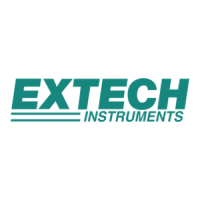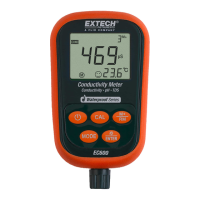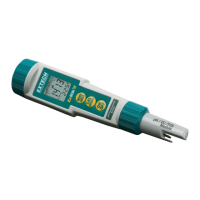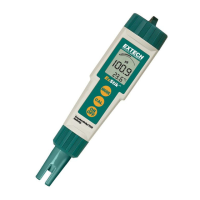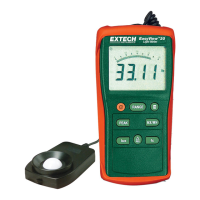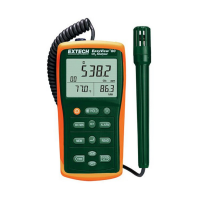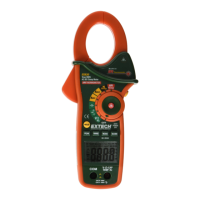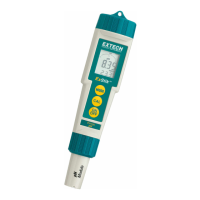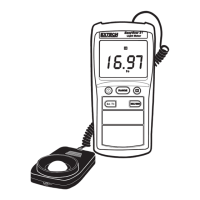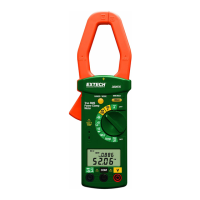11 EC150-EU-EN-V2.0-9/11
Appendix D: Temperature Effects
Conductivity measurements are temperature dependent; if the temperature increases, conductivity
also increases. For example, the conductivity measured in a 0.01 M KCL solution at 20°C is
1.273mS/cm, whereas, at 25°C, it is 1.409 mS/cm.
The concept of reference temperature (normalization temperature) was introduced to allow the
comparison of conductivity results obtained at different temperatures. The reference temperature is
usually 20°C or 25°C. This conductivity meter measures the actual conductivity and temperature
and then converts it to the reference temperature using a temperature correction function and then
displays the conductivity at the reference temperature. This meter uses linear temperature
correction.
Linear temperature correction
In moderately and highly conductive solutions, temperature correction can be based on a linear
equation involving a temperature coefficient. The coefficient is usually expressed as a conductivity
variation in %/°C. Refer to the following formula:
Where:
K
Tref
= Conductivity at Tref
K
T
= Conductivity at T
T
ref
= Reference temperature
T = Sample temperature
= Temperature coefficient
Note: The correction is accurate only within a limited temperature range near T1 and T2; the greater the
difference between T and Tref, the higher the risk of error.
Calculating Temperature Coefficient ( )
Measuring the conductivity of a sample at temperature T1 close to Tref and another temperature
T2, the temperature coefficient can be calculated using the following equation:
T2 should be selected as a typica
l sample temperature and should be approximately 10°C different
from T1. The temperature coefficients of the following electrolytes generally fall into the ranges
shown below:
Acids: 1.0 – 1.6%/°C
Bases: 1.8 – 2.2%/°C
Salts: 2.2 – 3.0%/°C
Drinking water: 2.0%/°C
Ultrapure water: 5.2%/°C
Average temperature coefficients of standard electrolyte solutions expressed as %/C of the
conductivity value at 25C.
Temperature Range (°C) KCl 1 M KCl 0.1 M KCl 0.01 M Saturated NaCl
15 – 25 1.725 1.863 1.882 1.981
15 – 25 – 35 1.730 (15 – 27°C) 1.906 1.937 (15 – 34°C) 2.041
25 - 35 1.762 (25 – 27°C) 1.978 1.997 (25 - 34°C) 2.101
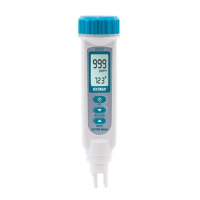
